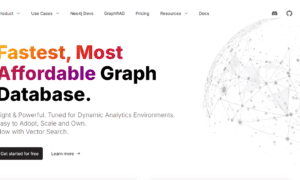Salesforce has long been a must-have tool for any business that looks to have their customer relationships managed as efficiently as possible. And in recent years, we have seen a new technology emerge and make itself integral in the modern world, expanding on the already powerful Salesforce – AI.
With Salesforce AI, the software has moved from a tool that stores customer data to one that can actively predict trends and generate valuable content. But how can you utilize that AI in Salesforce to make the most out of it?
In this article, we will share some of our experience and dive deep into the specifics of how AI integration works within Salesforce as well as its tangible benefits should you decide to push your CRM capabilities beyond the traditional.
What Is Generative AI in Salesforce?
Generative AI is a branch of artificial intelligence that is designed to create new data from already existing datasets. Specifically, Salesforce generative AI takes customer data (interaction history, behavioral patterns) and uses machine learning models to produce more personalized outputs.
In practice, this means that the platform can do much more than automated tasks or reporting – it actually suggests solutions now. For example, when a sales rep is about to contact a customer, Salesforce generative AI can draw info from the customer’s purchase history and previous support interactions and produce highly personalized reachout options. And what makes them most valuable is that these suggestions are not based on generic templates but are dynamically generated to fit the specific context.
Role of AI in Salesforce
AI’s primary role in Salesforce is to improve your decision-making through automating complex data analysis. One of the main examples of Salesforce AI capabilities would be Einstein AI.that applies machine learning to prospect data to predict the likelihood of a lead converting into a customer. It is able to compare historical trends, behavior, and engagement metrics to eventually assign a score to each lead, prioritizing the most promising ones.
Elsewhere, in customer support, Salesforce AI excels at NLP (Natural Language Processing), which powers Einstein Bots. They’re trained to pick up on context, sentiment, and even intent, so that they can escalate more complex queries to human agents or resolve them directly.
Additionally, AI plays a vital role in anomaly detection. For instance, with high-quality Salesforce integration of AI, its algorithms can scan through transactional or engagement data to find unusual patterns (e.g. a sudden drop in customer engagement) and alert the team about them.
Salesforce AI Key Capabilities
Predictive Lead Scoring
As previously mentioned, Salesforce Einstein AI’s predictive models assign lead scores based on data analysis that spans thousands of historical interactions. And what’s more, the algorithm continuously improves by learning from new customer interactions and refining its predictions.
This leads to far less manual sorting of leads and a more efficient way to focus your sales efforts on prospects with the highest likelihood of conversion.
Automated Data Capture
AI in Salesforce can also significantly improve your data hygiene through automating data capture. A tool called Einstein Activity Capture can track customer emails, calendar events, and various interactions, logging them directly into Salesforce without manual entry. This reduces the risk of data gaps that might happen when sales reps forget to log their interactions.
Apart from that, AI also analyzes these captured activities to suggest follow-up actions based on the timing, frequency, and tone of the communications.
Einstein Discovery
Perhaps one of the most powerful features, Einstein Discovery, can provide insights into what is happening in your business and why – and give you specific recommendations to improve your efficiency.
For instance, if sales cycles are taking longer than average, Einstein might identify the contributing factors (e.g. customer hesitation at a specific pricing tier) and suggest concrete fixes like adjusting pricing models or offering more personalized incentives.
Einstein Bots for Customer Service
While many CRMs do boast chatbot functionality, Einstein Bots are on a different level, as they are designed for sophisticated problem-solving. They can handle far more complex queries using NLP and sentiment analysis – a customer facing an issue with a product might describe it in ambiguous terms like “my software keeps crashing.” Rather than relying on keywords, Einstein Bots understand the customer’s intent and can troubleshoot or guide the customer through a series of resolutions autonomously. The bot learns from each interaction, continuously improving its ability to manage future customer interactions.
Einstein Vision and Image Recognition
One of the lesser-known but powerful features is Einstein Vision, which allows businesses to use image recognition within their Salesforce environments. This tool is especially useful for industries like retail, where visual data is crucial. For example, retailers can use it to automatically categorize product images submitted by customers or to identify products in need of replacement based on images uploaded to service requests. It brings visual data into the CRM realm, enabling a wider array of use cases.
How Generative AI Is Revolutionizing Salesforce Solutions
To sum it up, generative AI actively produces new content based on continuous learning from historical and live data – unlike traditional AI models, which are reactive and reliant on fixed datasets.
Sales
With generative AI, Salesforce can draft unique emails adapted to each prospect’s engagement history, needs, and sentiment. They’re designed to feel human (as much as it’s possible with the current state of AI), with adaptive tone and structure based on the type of customer and the specific stage in the buying cycle.
Customer Service
In the context of customer service, generative AI can create responses to support tickets that are personalized based on customer data, prior interactions, and even the emotional tone of the customer’s message. In turn, this tends to make each response more relevant and reduce back-and-forth communication.
Internal Operations
Moreover, even administrators and developers can now describe the type of report or dashboard they need, and Salesforce’s generative AI tools will build it out autonomously. So instead of sifting through numerous fields and filters, they can simply describe their needs in their natural language, and the AI will give them the desired output.
Future of AI in Salesforce CRM
Looking forward, we believe that AI’s role in Salesforce will only grow – Salesforce is already developing AI that can work autonomously, triggering live adjustments to sales or automating case resolutions before human agents get involved.
We can also expect AI models to focus more on real-time learning. Currently, AI models update based on historical data, but the future may see these models learning continuously from real-time interactions, which could result in even more accurate predictions and recommendations.
Regardless, implementing AI in Salesforce could potentially rake in a lot of extra revenue from saved expenses – but, due to its complexity, it has to be done right. And while you may handle the implementation internally and succeed, it’s still highly recommended that you partner up with a certified Salesforce customization services provider.



































